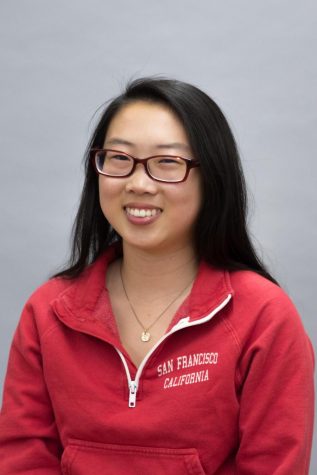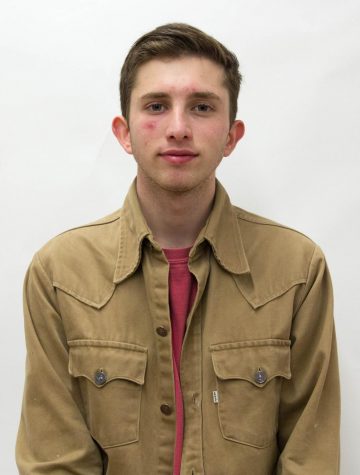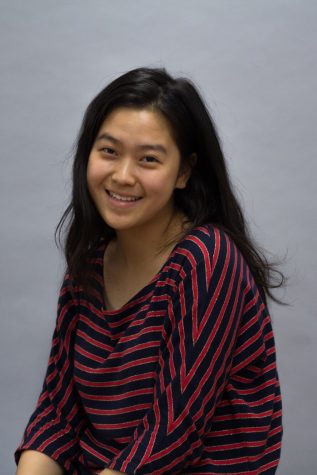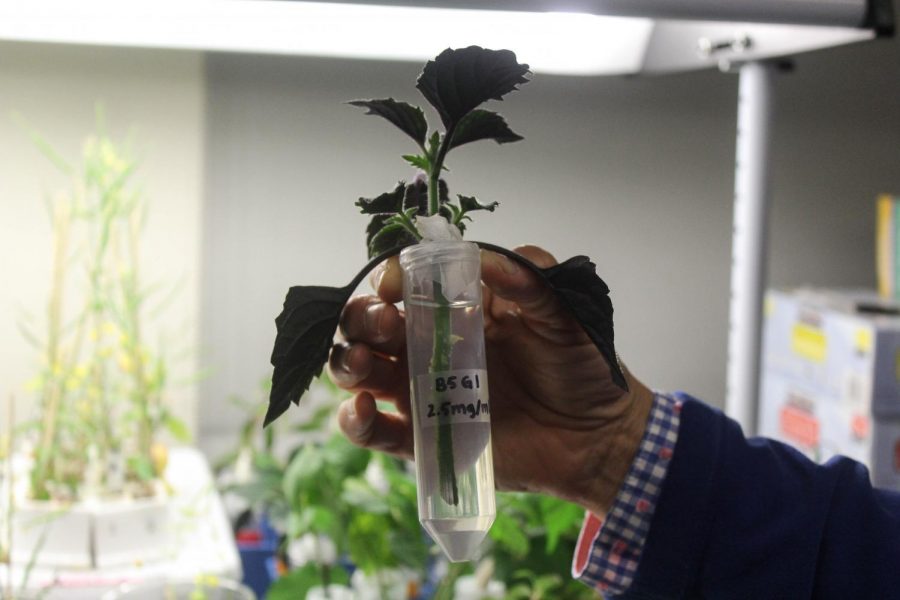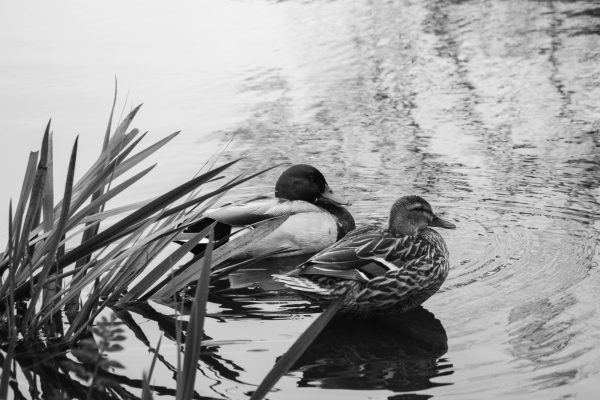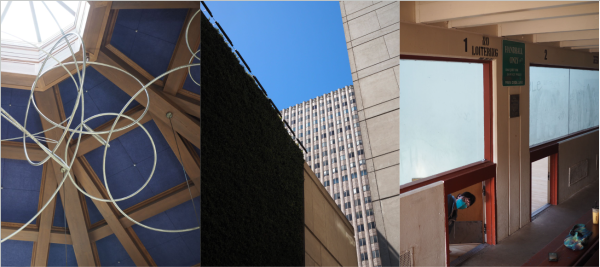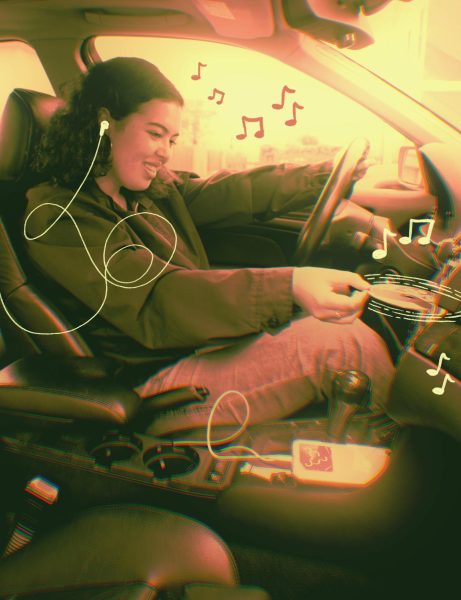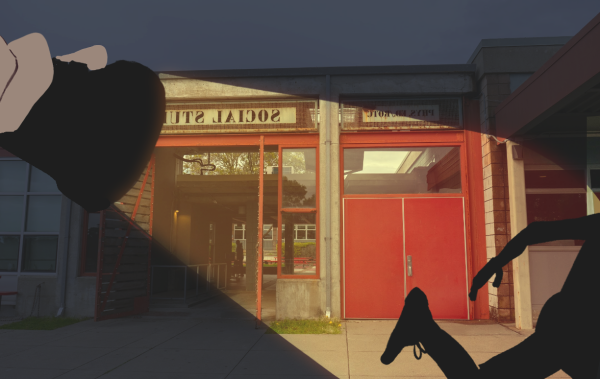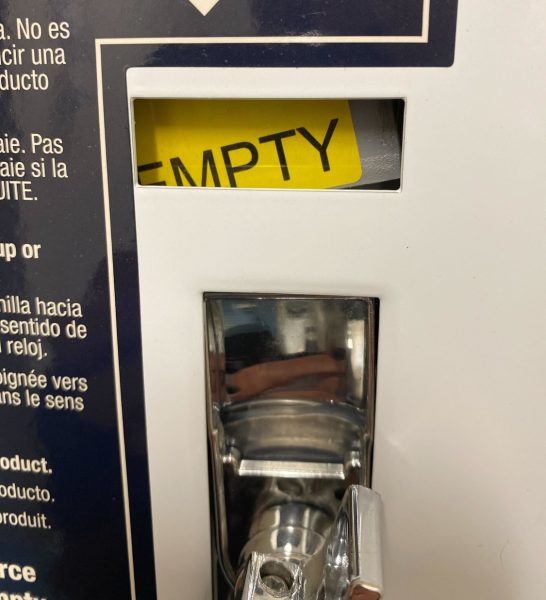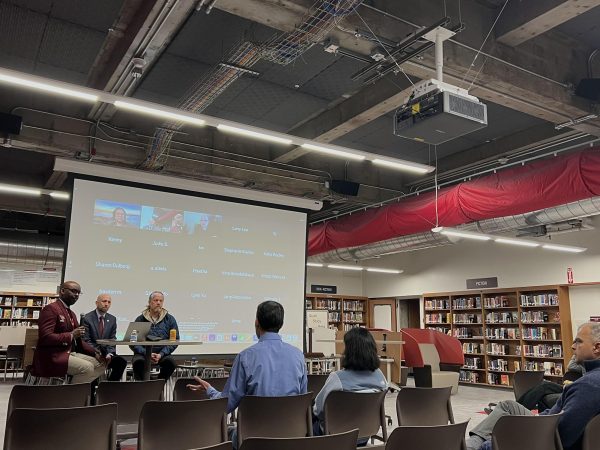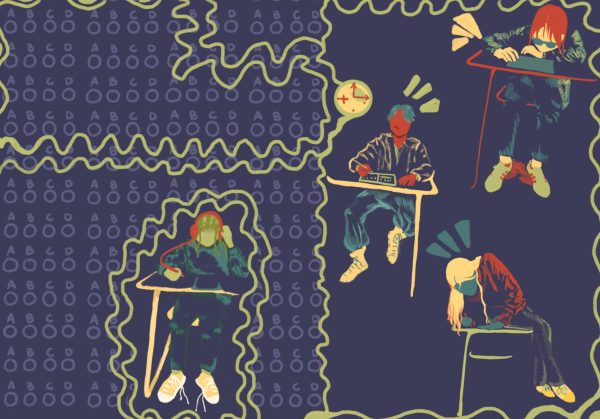Going Beyond Biology: Highlighting Upper Level Science Courses
Daley holds a plant that is part of an experiment for bio tech
After the required two years of life and lab sciences, many Lowell students go into AP science classes, or stop taking science all together. Some, however, continue on into more unusual courses, such as Principles of Biotech and Marine Science.
Students can explore genetic engineering, conduct hands-on experiments and get a taste of the medical industry in Principles of Biotech classroom tucked away near the Vicci center. Taught by biology teacher Bonnie Daley, Principles of Biotech is entirely lab based and geared towards preparing students for working in a real lab or in the medical field. Over the course of the two semesters, students learn how to maintain an industry standard lab notebook and conduct high-level experiments. Students gain the skills to go out and work in a real biotechnology lab, according to Daley. They also gain hands-on experience working with industry equipment through the numerous lab experiments. “A lot of the tools we use in biotechnology are used in medical research,” Daley said.
Principles of Biotech differs from Biology and AP Biology primarily in that it focuses on microbiology and engineering biological products. It also has much less studying and fewer tests than other science classes might have, according to Daley and past students. “You just have to come to class and do the labs,” Daley said.
A typical day in Principles of Biotech might include transforming bacteria to exhibit different traits, learning about how genetically engineered products are produced and how to genetically modify plants, according to Daley.
The class is taught during fifth and sixth block. It is open to any juniors and seniors who have already completed two laboratory science credits and have an interest in biotechnology. It is considered an elective but it can also fulfill the UC science requirements as the third laboratory science course.
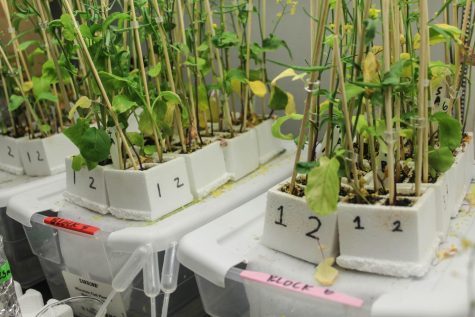
Plants from Daley’s class’s experiments with genetics
Students can learn about the chemistry of oceans, the physics behind wave movements and how oceans impact our daily lives here on land in Marine Sciences, taught by Anjanna Ampirapu and Catherine Christensen. According to Ampirapu, marine sciences is a “truly interdisciplinary class.”
Marine science is especially relevant to San Francisco students, because of Lowell’s proximity to the coast. “[The ocean] really is an alien world that is just in our backyard,” Ampirapu said. The course brings a level of understanding to how oceans impact people’s daily lives, from whether we need to wear a jacket in the morning, to what’s on our dinner plate at night.
Students also have the ability to interact with and study marine organisms first hand, through field trips to the ocean. One is a joint field trip with AP Environmental Science, where both classes spend the day on a research boat on the Bay, collecting samples, measuring water quality and observing organisms from our local aquatic ecosystem.
On a daily basis, the class has presentations or labs about different ocean organisms and the importance of ocean ecosystems. According to Ms. Amirapu, most students choose to take the class based on prior interest but it is open to all who are interested in expanding their knowledge of aquatic life and the ocean.
While the class is mostly junior and senior students, there are no prerequisites, according to Amirapu. It is an elective class, so students do not receive science credit.
